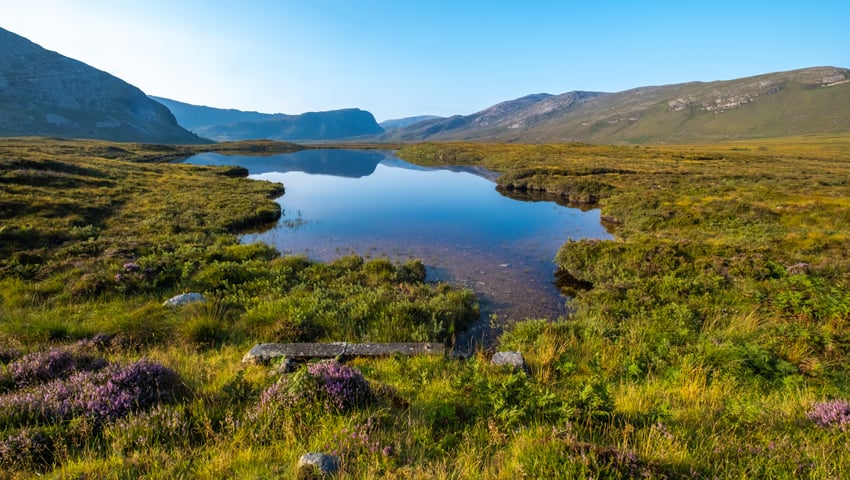SCOTLAND’S farmers and crofters will make their voices heard as Scottish Government opens the process whereby communities and organisations are invited to submit proposals to become Scotland’s next national park, writes NFU Scotland’s Environmental resources Policy Manager Sarah Cowie.
Responding to the announcement, Sarah said, “The key concerns NFU Scotland has around the creation of any new national park is that it will not prioritise farming or food production, even though agriculture is likely to be the predominant land use in any new park.
“Disappointingly, in the statement the Scottish Government released to announce the process of appointing a new park or parks, there is no mention of agriculture, food production or agri-tourism despite these being key pillars and drivers of the rural economy.
“With justification, our members are concerned that the wider impacts of national parks on their businesses aren’t being taken into account.
“We completely accept the fact that we have to take action on climate change, as well as restoring and protecting biodiversity, but our members are unconvinced that a new national park is the best way to do this. Essentially, we’re unclear on what the added value of a national park is and believe its objectives can be achieved through other existing means such as economic development agencies, regional land use partnerships (RLUP) and tourism bodies.
“For farming businesses to be profitable and sustainable, they have to invest and grow, and there are real concerns that national parks are just another layer of bureaucracy which won’t deliver for those living and working in the area.
“Some, but not all, of our members in the existing two national parks in Scotland feel that they have failed to make a positive contribution to farming. There is a sense that tourism and attracting more visitors to an area is the main driver of a national park, and that this is then prioritised over agriculture and food production. This has resulted in a failure to retain local people to the area and protect local businesses which ultimately, has a detrimental impact on the rural economy.
“We have heard other concerns from members who have direct experience living within the national park. They have evidence of overcrowding, congestion, irresponsible access, livestock attacks by dogs and other antisocial behaviour. We recognise the benefits of public access, but it must be managed in a balanced way with support available for land managers where there are issues.
“Farms are living, working environments and irresponsible access can be dangerous. We know from our previous consultation with our members that there is a real fear that these access problems will be what farmers and crofters will have to suck up and accept if they are in a new national park.
“We do believe a balance can be struck, as long as all views are listened to and not just those who are fully supportive of the proposals.
“The key step the Scottish Government has to take in order to strike this balance is to ensure lessons are learned from the mistakes of the current two national parks. This means farming and food production must be prioritised, the local community has meaningful involvement in decision-making, and the national park authority is properly resourced. Only then can there be any chance of avoiding the negative impacts that we’ve outlined.”
